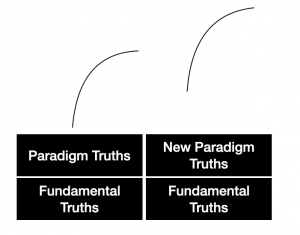The Future of Work – What Is It, Really?
The Future of Work – What Is It, Really?
“So, what is ‘future of work’?”
As the Head of the BootstrapLabs Venture Studio for Future of Work (phew, that’s a long title), I’ve been getting that question a lot lately. The term “future of work” is broad and covers a wide range of areas. To understand where work is heading, you have to ask yourself questions like: “What are the big trends that impact how we work?”, “What do we want from work?” and even “What is work, really?”.
Big and broad questions. Maybe there is another way to approach it? A reasonable starting point is to at least agree on a fundamental definition of work itself. I like this one:
Activity involving mental or physical effort done in order to achieve a purpose or result.
Things get messier when we start talking about organized work and we have multiple people coming together to achieve a shared goal. We use constructs like companies to set the legal and mental frameworks for collaborating. In the book “The Next Rules of Work“, Gary A. Bolles writes:
The purpose of the organization is as a platform for channeling human energy.
We live in a free market system where those companies that can best achieve desirable results for their stakeholders (primarily customers and owners but also employees, partners, society, and the ecosystem) survive in an ever evolving game of competition. We can put the two sentences above together and form a sort of optimization target for companies:
The organisation that can best channel human energy to focus mental or physical effort to achieve results for its stakeholders will win.
Notice how words like “salary”, “employment” or “office” is absent from this sentence. And what does a silly little statement like this tell us about the future of work? Isn’t it obvious that the best organizations win?
The reason I would like to take a step back, and ask basic questions like the ones above, is because we are in the middle of a paradigm shift and when those happen it’s a good idea to look at the bigger picture. While inside a particular paradigm, improvements and changes are incremental, but when moving from one paradigm to the next a lot of what we believed were fundamental truths turn out to be just side effects of the current paradigm.
The office is a perfect example of this.
Before the pandemic, not having an office seemed like a crazy idea. Today, many companies are asking why they pay overpriced rents for central locations that no one visits. It turns out that the office was a relic from the days before video meetings and internet based work. It was a paradigm specific “false” truth that you have to have an office. (I do think that physical meeting spaces have great value for people, but it is at least very different from what it used to be. How is it different? Well, to answer that you have to understand why we meet to begin with, so you have to understand the fundamental truths.)
There are many false truths like that and if you want to understand the Future of Work, you have to ask yourself what are the paradigm specific false truths and what are the fundamental truths?
I plan to post a series of blog posts digging in to this question, because it where the fundamental truths meet the new opportunities provided by a new paradigm that a huge potential for value creation in the form of new startups opens up, so make sure to stick around.
And of course, feel free to connect if you want to continue the conversation about Future of Work!
Erik Starck




